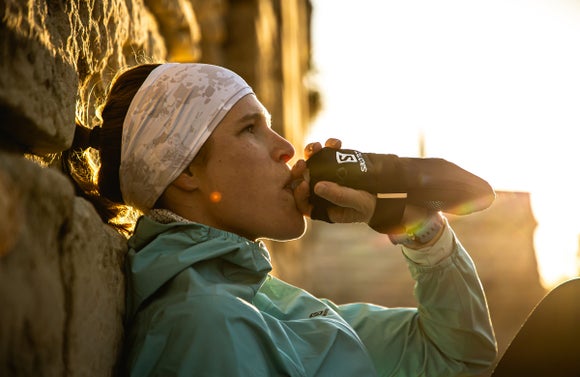Recovery Nutrition for Runners
RWA | Updated: 4 February 2026

The moment your run ends, recovery begins. Each training session places stress on your muscles, depletes glycogen stores and challenges your immune and hormonal systems. How you refuel determines how well your body repairs and adapts. Consistently supporting recovery through nutrition helps reduce fatigue, lowers injury risk and allows runners to maintain consistent training.
Recovery nutrition is not simply about replacing calories. It involves restoring energy, repairing muscle tissue, rehydrating and supplying essential nutrients that keep your body functioning efficiently. When runners understand how these elements work together, recovery becomes less complicated and far more effective.
Understanding What Your Body Needs After Running
Running primarily relies on carbohydrates as fuel. During exercise, glycogen stores in muscles and the liver are gradually depleted. At the same time, muscle fibres experience small amounts of damage that require protein to repair and rebuild. Sweat losses also reduce fluid and electrolyte levels, which must be replaced to support circulation, muscle function and temperature regulation.
Effective recovery nutrition focuses on three core priorities:
|
The first 30–60 minutes post-run is considered the most effective window for refuelling. During this period, muscles are highly responsive to carbohydrate uptake and protein synthesis. Consuming a recovery snack or drink during this time supports faster glycogen restoration and muscle repair.
Carbohydrates and Protein
Carbohydrates and protein work together as the primary drivers of recovery after running. During exercise, the body relies heavily on carbohydrates for energy, gradually depleting glycogen stores within muscles and the liver. At the same time, the repetitive impact and muscular effort of running causes small amounts of muscle fibre breakdown that require protein to repair and rebuild. Replenishing both nutrients after training helps restore energy levels, support muscle adaptation and prepare the body for the next session.
Sports nutrition guidelines generally recommend consuming approximately 1–1.5 grams of carbohydrate per kilogram of body weight following a run to effectively restore glycogen stores. Alongside this, protein intake supports muscle repair and recovery, with research suggesting a 3:1 or 4:1 carbohydrate-to-protein ratio is optimal for endurance athletes. This balance allows the body to efficiently replenish energy while stimulating muscle repair processes.
The table below provides a practical guide for runners:
| Body Weight | APPROXIMATE CARBOHYDRATE INTAKE |
APPROXIMATE PROTEIN INTAKE |
| 55kg | 50-80g | 15-20g |
| 65kg | 65-95g | 17-25g |
| 75kg | 75-110g | 20-28g |
| 85kg | 85-120g | 22-30g |
| 95kg | 95-135g | 25-35g |
Carbohydrates from whole grains, fruit, dairy and starchy vegetables provide valuable vitamins and minerals alongside energy restoration, while quality protein sources such as dairy, eggs, lean meats, legumes, tofu and protein-fortified smoothies help support muscle repair. Including both nutrients soon after training encourages faster recovery and helps runners maintain consistency throughout their training cycle.
Healthy Fats
Although carbohydrates and protein dominate immediate recovery, healthy fats play an important supporting role. Fats assist with hormone regulation, reduce inflammation, and provide sustained energy, particularly during heavy training periods.
Including sources such as nuts, seeds, avocado, olive oil, and fatty fish helps support overall recovery and long-term performance.
Micronutrients
While macronutrients form the foundation of recovery, micronutrients are equally important for maintaining performance and preventing fatigue.
Iron
Iron supports oxygen transport within the bloodstream, making it particularly important for endurance athletes. Low iron levels can contribute to fatigue and reduced aerobic performance. Runners can support iron intake through red meat, legumes, spinach and fortified cereals. Pairing iron-rich foods with vitamin C sources such as citrus fruits or capsicum improves absorption.
Electrolytes
Electrolytes including sodium, potassium, calcium, and magnesium help maintain fluid balance and support muscle contractions. These are lost through sweat, especially in warm environments. Foods such as bananas, dairy, nuts and leafy greens help replenish these minerals.
Antioxidants
Running increases oxidative stress within the body. Antioxidants such as vitamins C and E help reduce inflammation and support immune function. Colourful fruits and vegetables like berries, citrus fruits, and leafy greens are excellent sources.
Recovery Drinks & Rehydration
Replacing fluids lost through sweat is a critical part of recovery, as dehydration reduces plasma volume and can slow nutrient delivery and muscle repair. Drinking fluids soon after training helps restore hydration levels and supports overall recovery processes. Water is usually sufficient following shorter or lower-intensity runs, while electrolyte-containing drinks may be more beneficial after longer sessions or training in warmer conditions. Monitoring urine colour and thirst levels can provide a simple and practical way for runners to assess their hydration status.
Recovery drinks can be particularly useful when appetite is low or when convenience is needed, providing carbohydrates, protein, fluids and electrolytes in an easily digestible form. Many recovery drink mixes are designed to match recommended carbohydrate-to-protein ratios, helping rapidly restore glycogen levels while supporting muscle repair. Chocolate milk is another simple and accessible option that naturally contains carbohydrates, protein, sodium and potassium, making it an effective recovery choice. These drinks are especially beneficial following long runs, races or high-intensity sessions where rapid refuelling and rehydration are important.
Shop Recovery Drink Mixes
Recovery Foods
Whole foods provide additional nutrients and are ideal when runners are ready for a more substantial meal. Combining carbohydrate-rich foods with protein and healthy fats creates a balanced recovery plate.
|
Examples include:
|
Recovery meals should maintain the same carbohydrate-to-protein ratio as drinks, and should be ingested during that same 30-60 minute window post run. Recovery itself requires energy, and failing to refuel can delay muscle repair, increase fatigue, and raise injury risk. Consistently under-refuelling may also contribute to Relative Energy Deficiency in Sport (RED-S), affecting performance, hormones, and overall health.
Shop Bars
Quick Recovery Snack Ideas
Here are simple, practical snacks that meet the carbohydrate-to-protein ratio and are easy to have after training:
|
|
These snacks can be adjusted to portion size and body weight to meet your carbohydrate and protein targets.

























